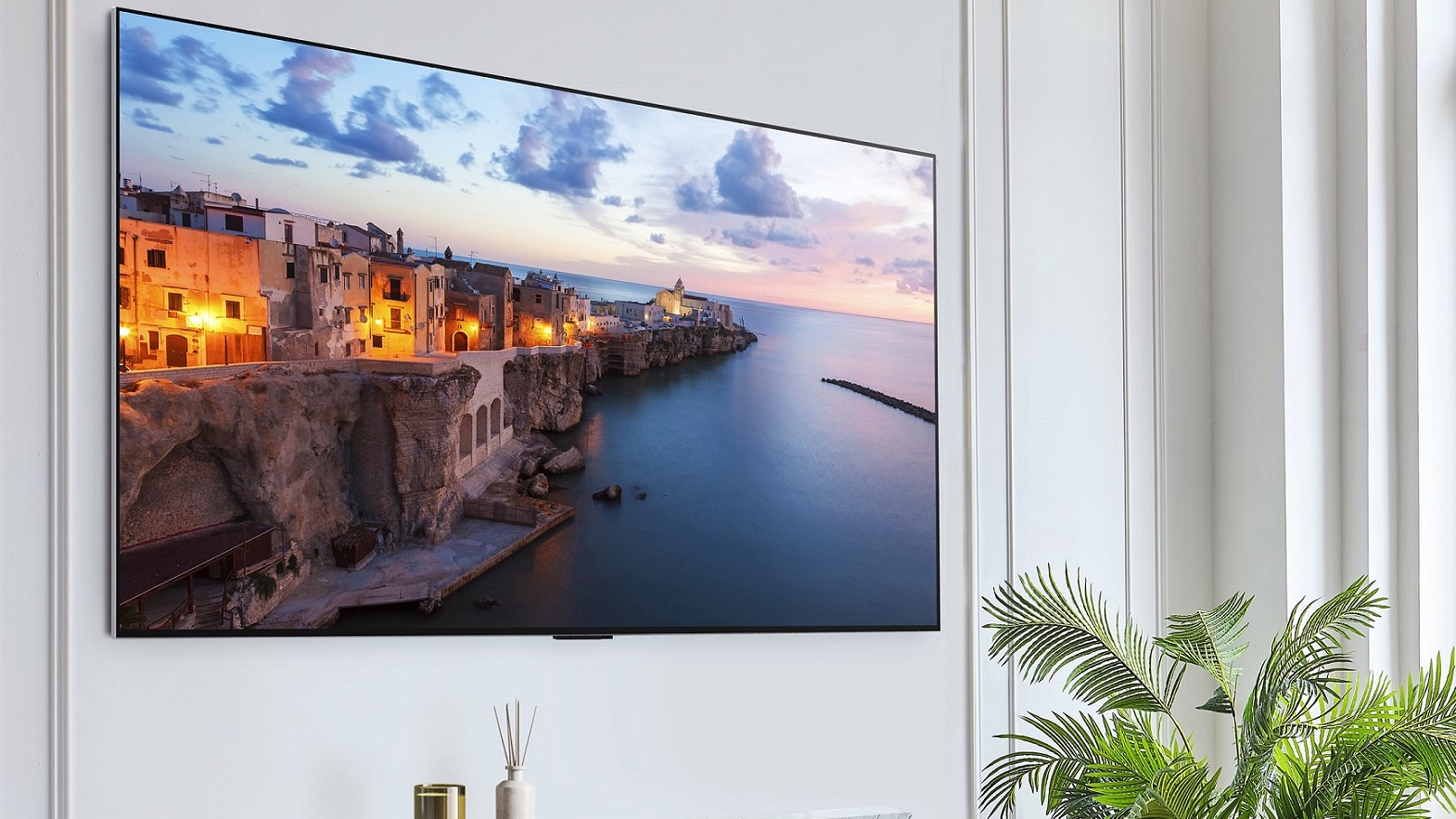Watching TV before bed isn’t great, but it’s okay if you have an OLED
Want the best TV for your bedroom? Look for this display tech

Sign up for breaking news, reviews, opinion, top tech deals, and more.
You are now subscribed
Your newsletter sign-up was successful
Do you have a TV in your bedroom? Lots of people will tell you that you shouldn't. Late-night screen time is believed to wreak havoc on your circadian rhythms, the natural 24-hour clock that can control your sleep/wake cycle. But if you're determined to binge box sets in bed, you should probably consider buying one of the best OLED TVs to do it with, specifically one of the best LG TVs.
As one of the leading manufacturers of OLED panels, LG Display announced on June 27 that its display technology used in OLED TVs and monitors received a new certification from TÜV Rheinland called 'Circadian Friendly', which measures the amount of light emitted by display panels.
LG Display's self-emissive OLED TVs and monitors are the world's first displays to get the 'Circadian Friendly Level (CFL) 1' certification's highest rating, which means they're less disruptive on your biological clock than others.
After all, we're fairly simple creatures, and circadian rhythms are the internal clock that tells our body to do certain things at certain times, such as going to sleep and waking up. There have been concerns for some time that late-night screen use messes with those rhythms, stimulating our eyes and our brains when we're supposed to be winding down, and those concerns have focused in particular on the blue light emitted by many displays.
What's the problem with blue light?
Blue light is believed to have the strongest effect on circadian rhythms, and as Harvard University Medical School explains "blue wavelengths – which are beneficial during daylight hours because they boost attention, reaction times, and mood – seem to be the most disruptive at night". And that's not good.
It's important to note that if you Google this stuff, you'll soon go down a rabbit hole of really bad and uninformed pseudoscience and outright quackery of the tinfoil hat variety. But as Harvard Medical School says, there is some evidence of a possible connection between blue light and diabetes (possibly obesity too).
"Exposure to light suppresses the secretion of melatonin, a hormone that influences circadian rhythms. Even dim light can interfere with a person's circadian rhythm and melatonin secretion. A mere eight lux – a level of brightness exceeded by most table lamps and about twice that of a night light – has an effect". Studies on this have been small so far, but there's enough evidence to suggest a causal link rather than just coincidence.
Sign up for breaking news, reviews, opinion, top tech deals, and more.
There's also the wider issue of lack of sleep, which we know can have serious effects. It's been linked to depression, diabetes and some cardiovascular problems. And blue light definitely has an effect on sleepiness.
The doctors' advice is to avoid screens for two to three hours before bed, but in all honesty I don't imagine anybody will be doing that. But if you're planning to buy a TV for the bedroom, it might be wise to go for an OLED or one of the best Samsung TVs that features its EyeComfort Mode, which reduces blue light levels at night.

Contributor
Writer, broadcaster, musician and kitchen gadget obsessive Carrie Marshall has been writing about tech since 1998, contributing sage advice and odd opinions to all kinds of magazines and websites as well as writing more than twenty books. Her latest, a love letter to music titled Small Town Joy, is on sale now. She is the singer in spectacularly obscure Glaswegian rock band Unquiet Mind.